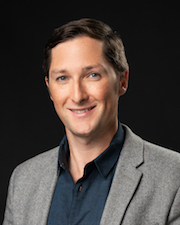Should colleges consider “study drugs” cheating?
How should colleges respond as more students are using so-called study drugs to power through midterms?
Penn GSE’s Ross Aikins, Adjunct Assistant Professor and Program Manager in the School's top-ranked Higher Education Division, appeared on SiriusXM’s Knowledge@Wharton with Princeton’s Dr. Anita Gupta.

“There’s usually language in institutional policies that says we uphold all federal and state laws [in our] behavioral code of conduct. But in terms of cheating, plagiarism, academic integrity, just Duke,” has explicitly addressed study drugs, Aikins told Knowledge@Wharton.
According to Aikins, universities’ reluctance to weigh in on the question could be resulted from the fact that study drugs are a relatively new issue.
“Colleges don't want to crack down on medications for students who are clinically diagnosed to legally have these,” Aikins said. “There is this thing called boomerang effect. By putting it in an academic integrity policy, it is also admitting that it can be advantageous for some. So you don't want to pique curiosity."
